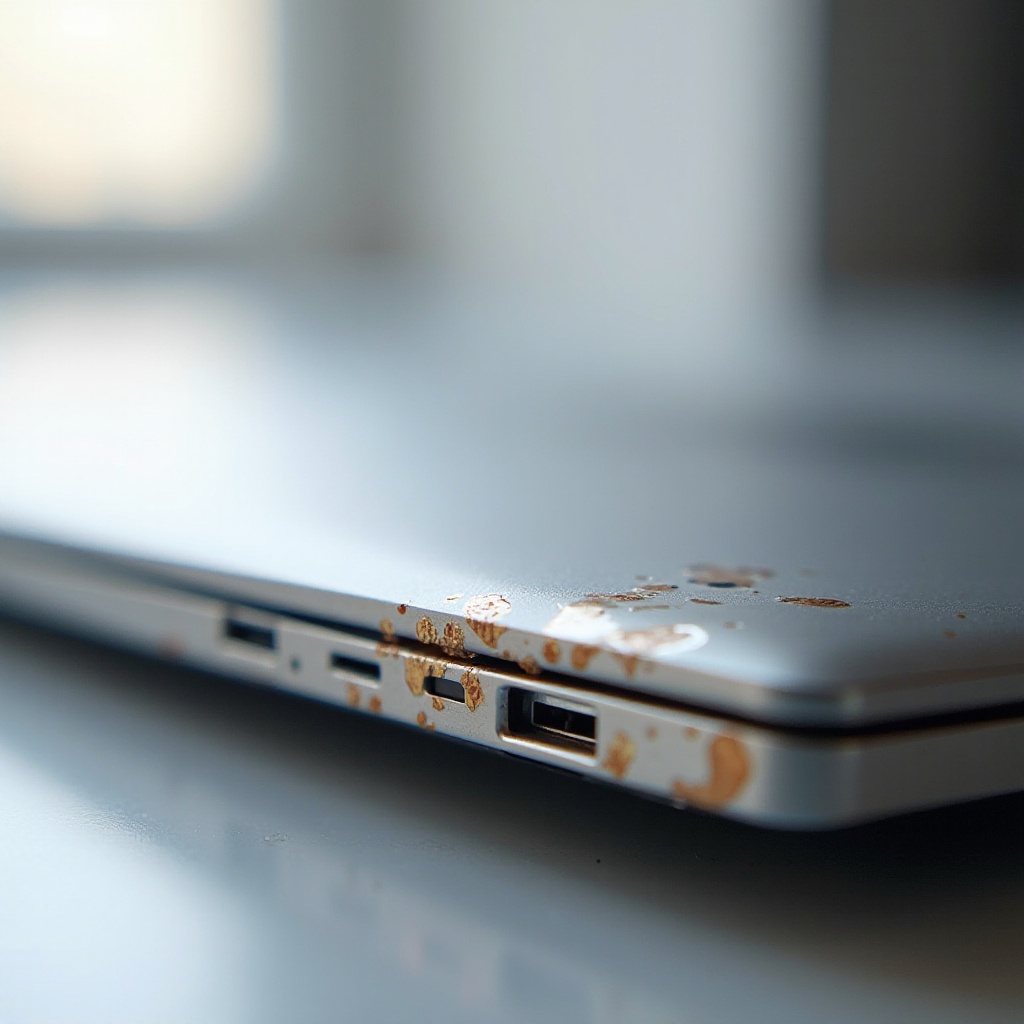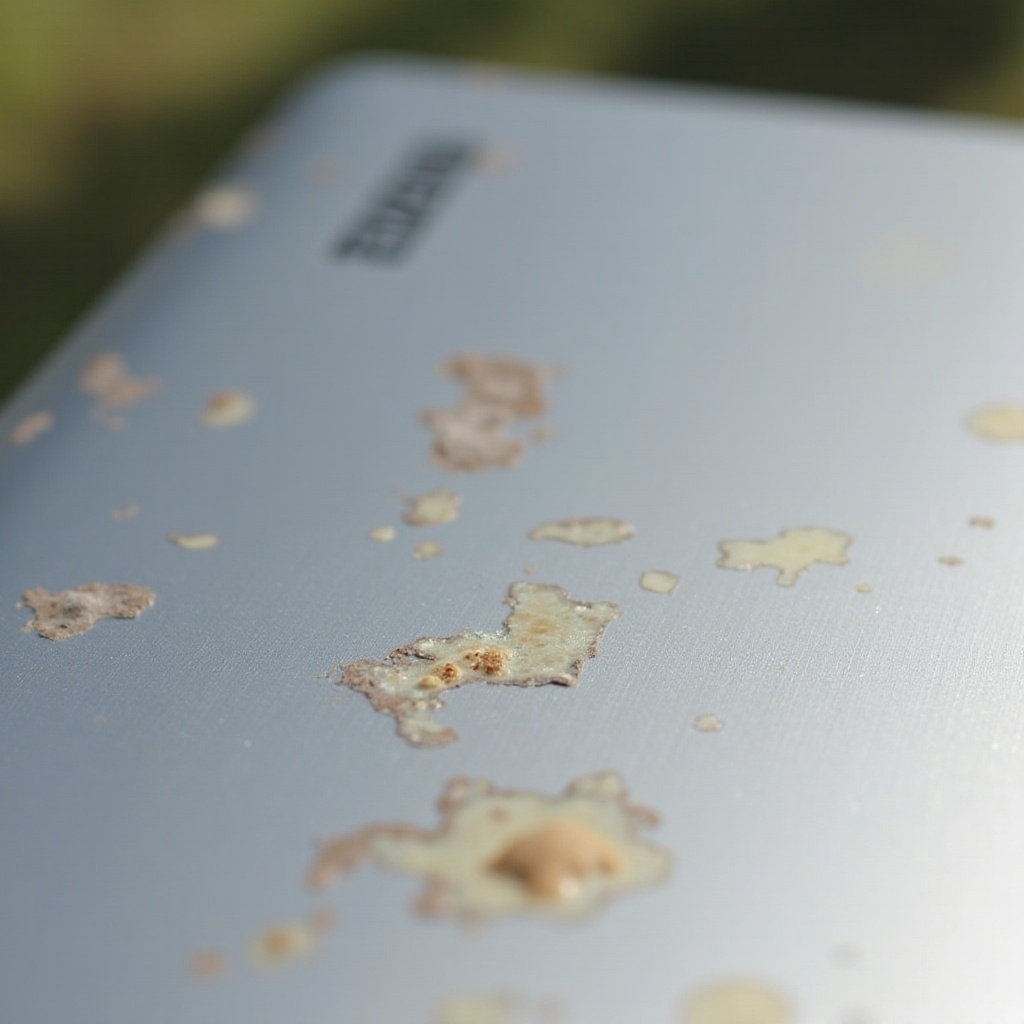Introduction
Oxidation on your Lenovo Chromebook can lead to both aesthetic and functional problems. It's essential to address oxidation promptly to ensure your device remains in good working condition. This comprehensive guide will walk you through the process of identifying oxidation, preparing for cleaning, executing the cleaning steps, and taking preventive measures to avoid future oxidation.

Identifying Oxidation on Your Chromebook
Before diving into the cleaning process, you need to identify if your Chromebook has oxidation. Common signs include discoloration, a rough surface texture, or visible rust spots on the metal parts of the device.
Signs of Oxidation
Discoloration of the metal parts, such as the keyboard or ports.
Visible rust spots.
A rough texture on surfaces that should be smooth.
Tools Needed for Inspection
Magnifying glass
Good lighting conditions
Cotton swabs
Safety Precautions
Make sure the Chromebook is turned off and unplugged.
Work in a well-ventilated area.
Use gloves to protect your hands.

Preparing for Cleaning & Repair
After identifying oxidation, it's crucial to prepare appropriately. This means gathering all necessary tools and ensuring a safe working environment to prevent further damage to your Chromebook.
Required Tools and Materials
Isopropyl alcohol
Microfiber cloth
Soft brush
Screwdriver set
Protective gloves
Setting Up a Safe Working Environment
Clear a workspace that is well-lit and free from dust.
Lay down a soft cloth to place disassembled parts on.
Ensure that you have all your tools within reach.
Disconnecting and Disassembling Your Chromebook
Turn off your Chromebook and unplug it.
Use the screwdriver to remove the back panel.
Carefully disconnect any visible cables to expose the internal components.
Step-by-Step Cleaning Process
With your materials ready and workspace set, you can now begin the detailed cleaning process, targeting both external and internal components.
Cleaning the Exterior
Dampen the microfiber cloth with isopropyl alcohol.
Gently wipe down the exterior surfaces, including the keyboard and ports.
Use a soft brush to clean out any debris from the cracks and crevices.
Addressing Surface Oxidation
For minor rust spots, use a cotton swab dipped in isopropyl alcohol.
Gently rub the affected areas until the oxidation is removed.
Deep Cleaning Internal Components
Use the soft brush to gently sweep dust and debris from internal parts.
If oxidation is present on internal components, use a cotton swab with isopropyl alcohol to clean them carefully.
After cleaning, reassemble the device by reconnecting cables and securing the back panel.
Preventive Measures to Avoid Future Oxidation
Once your Chromebook is cleaned, it’s important to adopt strategies that help prevent future oxidation.
Regular Maintenance Tips
Clean your Chromebook regularly with a microfiber cloth.
Keep the device in a dry environment.
Protective Cases and Accessories
Use a waterproof and dustproof case.
Consider protective keyboard covers.
Best Storage Practices
Store the Chromebook in a cool, dry place.
Avoid leaving the device in humid environments for extended periods.
Conclusion
Addressing oxidation on your Lenovo Chromebook can maintain its functionality and appearance. By following this comprehensive guide, you can effectively remove oxidation and adopt preventive measures to avoid future issues. Regular maintenance and good storage practices go a long way in ensuring your device remains in optimal condition.
Frequently Asked Questions
What should I do if oxidation persists after cleaning?
If oxidation persists, consider seeking professional help, as there may be underlying issues that require expert attention.
How often should I clean my Chromebook to prevent oxidation?
It's advisable to clean your Chromebook at least once a month and conduct a detailed inspection every three months to prevent oxidation.
Can oxidation damage be prevented completely?
While you can't completely prevent oxidation, regular cleaning and proper maintenance significantly reduce the risk and extend your Chromebook's lifespan.
